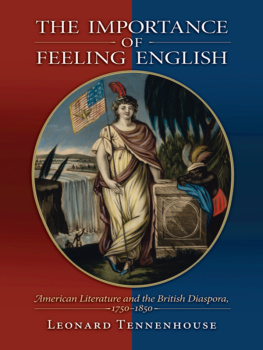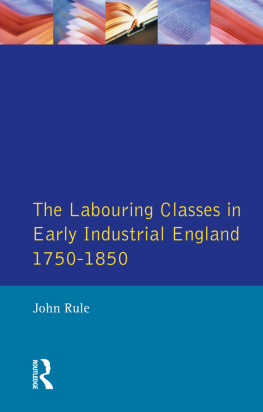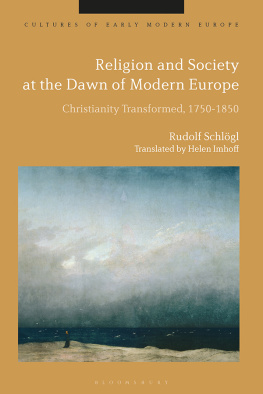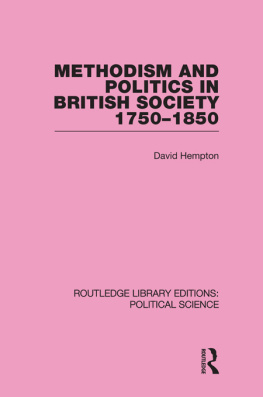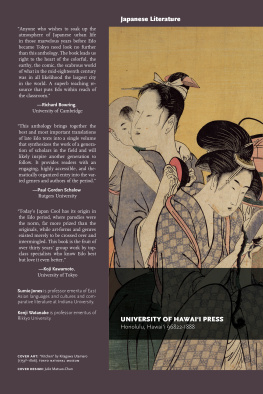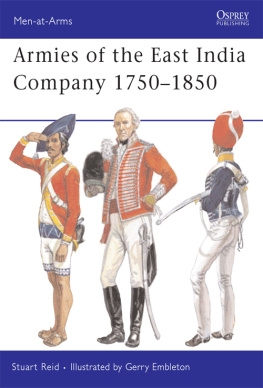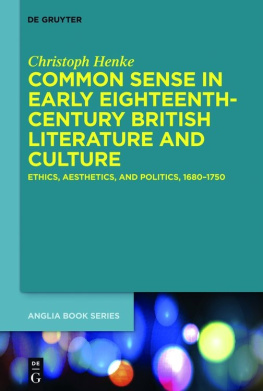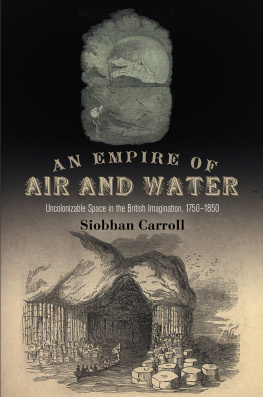THE IMPORTANCE
OF
FEELINGS ENGLISH

THE IMPORTANCE
OF
FEELINGS ENGLISH
American Literature and
the British Diaspora, 1750-1850

LEONARD TENNENHOUSE
PRINCETON UNIVERSITY PRESS
PRINCETON AND OXFORD
Copyright 2007 by Princeton University Press
Published by Princeton University Press, 41 William Street,
Princeton, New Jersey 08540
In the United Kingdom: Princeton University Press, 3 Market Place,
Woodstock, Oxfordshire OX20 1SY
ALL RIGHTS RESERVED
eISBN: 978-1-40082-792-3
Library of Congress Control Number: 2006939046
British Library Cataloging-in-Publication Data is available
This book has been composed in Minion Typeface
Printed on acid-free paper.
press.princeton.edu
Printed in the United States of America
1 3 5 7 9 10 8 6 4 2
For Nancy
CONTENTS
Diaspora and Empire
Writing English in America
The Sentimental Libertine
The Heart of Masculinity
The Gothic in Diaspora
From Cosmopolitanism to Hegemony
ACKNOWLEDGMENTS
THIS PROJECT began as a paper presented at the first meeting of the Society of Early Americanists and grew stronger and subtler in the exciting intellectual milieu of that fledgling organization. SEA members raised the questions that punctuate my argument; their many articles and books helped to determine the final direction and scope of this work. Elizabeth Dillon, Sandra Gustafson, Ed Larkin, Carla Mulford, Susan Scott Parrish, Ivy Schweitzer, David Shields, and Eric Slauter deserve special mention for sharing their own work in progress and providing valuable bibliographical leads.
Over the past few years, my introduction has been transformed by energetic conversations with Khachig Tlyan, editor of Diaspora. His capacious knowledge of diaspora studies allowed me to arrive at a clear sense of the various debates organizing that field. Wil Verhoeven and Marie Irene de Sousa Santos provided forums at the University of Groenigen and at the University of Coimbra, respectively, where I tested the conceptual model for this book.
When I decided to write a book about the transatlantic literary relations that created what we now call American literature, I had the great good fortune to find myself at Brown University, undoubtedly the best place in the country to undertake such a study. Here, I have been blessed with such colleagues as Rey Chow, William Keach, Kevin McLaughlin, and Michael Silverman, who generously encouraged this project from the start and at crucial moments provided institutional support for my undertaking. Colleagues in each of my three departments helped me think through aspects of this argument. For that I owe particular thanks to MichelAndr Bossy, Jim Egan, and Olakunle George. To Phil Gould I am indebted at every stage of this project. An unflagging enthusiast and a walking repository of knowledge about transatlantic relations in the colonial period, he went over every chapter with a keen eye and returned drafts to me with copious notes scribbled in the margins. I owe him special thanks.
I have benefited from the collegiality of two graduate students with an enduring appetite for antebellum American literature: Sian Silyn-Roberts and Brian Sweeney. Sian served as an invaluable research assistant as well. Two former graduate students, Ezra Tawil and Jason Solinger, did me the great service of reading portions of the manuscript. Perhaps my most important insightsthe fact that there is a distinctively American Clarissa,for examplecame to me while reading in the collections of the John Carter Brown Library and the John Hay Library. Brown also provided me with these truly unique research facilities, staffed with experts to guide me to the most wonderful material.
A portion of Chapter Three appeared in a previous version as The American Richardson, Yale Journal of Criticism 12 (1998): 17796. I wish to thank The Johns Hopkins University Press for permission to reprint the material. A modified version of chapter 2 appeared as A Language for a Nation: A Transatlantic Problematic, in W. M. Verhoeven, ed. TransatlanticRevolutions (New York: Palgrave Macmillan, 2002), 6284 and is reproduced with permission of Palgrave Macmillan.
Clifford Siskin, Elizabeth Dillon, and Daniel Cottom read the entire manuscript at various stages and together forced me to say what I meant. I revised earnestly in light of their comments. I am indebted to Hanne Winarsky of Princeton University Press for her unflagging support of this project.
Finally, this book germinated and grew in the warm environment of daily conversations with Nancy Armstrong, my most welcome critic.
THE IMPORTANCE
OF
FEELINGS ENGLISH

DIASPORA AND EMPIRE
AT THE RISK of stating the obvious, let me begin by asserting that any discussion of American literature will at some point have to address the questions of how soon and in what respects British Americans began to think of themselves as American rather than British. Instead of assuming that different national governments mean different national literatures, I come to this problem from the contrary perspective: that the separation of American from British literatures is still at issue and was therefore nothing like the clean break that we tend to project backward onto the late eighteenth century.
My argument begins with the proposition that during the period from 17501850 American authors and readers were more interested in producing and consuming English literature than in creating, to borrow Elaine Showalters phrase, a literature of their own.
After the War of Independence, there is every reason to believe that citizens of the new United States knewand felt keenlythat they were no longer subjects of Great Britain. But it does not necessarily follow from this that the colonists renounced their British identity in other respects simply because they rejected British government. Political separation did not in fact cancel out the importance of ones having come to America from Great Britain. Indeed, the literary evidence indicates that the newly liberated colonists became if anything more intent on keeping the new homeland as much as possible like the old one in terms of its language, literature, and any number of cultural practices. To the degree that it subjected Englishness to circumstances that could not be imagined back in England, literature written by, for, or about British America was never really British. But to the degree that those who authored and read such literature not only tried to maintain an English cultural identity but also sought to put the stamp of Englishness on the new nation, neither can that literature be called American in any pure and simple way. I take issue, in other words, with the critical practice that for a hundred years has used J. Hector St. John de Cre`vecoeurs What is an American (Letter III, LettersFrom an American Farmer) as the delineation of a new national culture. Despite the many helpful insights to be gained from recent attempts to compare the literature of the new republic to modern postcolonial literature written in South Asian, Caribbean, or African countries, there was no oppressed or colonized English-language culture of British North America waiting to emerge as soon as decolonization began. With some important adjustments, I propose, the cultural logic of diaspora offers such a model.
Next page
